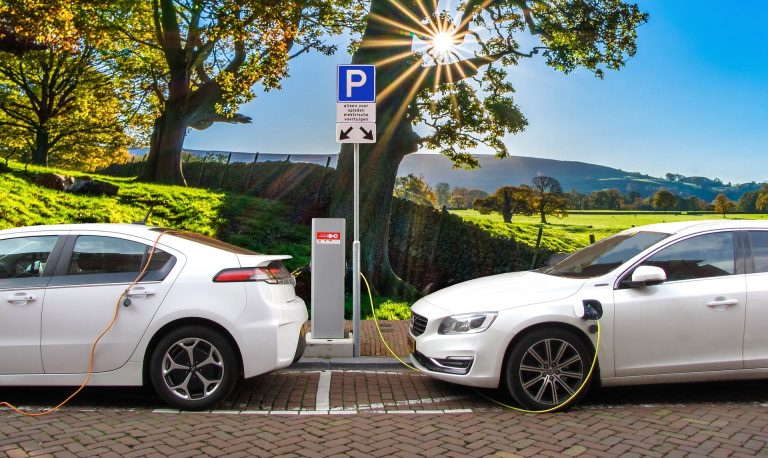The $1.2 trillion infrastructure bipartisan proposal put forward by the Democrats and supported by some Republicans sets aside $15 billion for electric vehicle charging infrastructure, electric buses, and transit. Within the bill is a provision that requires the Secretaries of State, Energy, and Commerce to conduct a study on the “impact of forced labor in China on the electric vehicle supply chain.” The study is to be completed within 120 days of the infrastructure bill being enacted.
The provision comes as the Senate had passed the Uyghur Forced Labor Prevention Act in early July that seeks to ban all products imported from China made with the forced labor of Uyghurs and other ethnic minorities. The infrastructure bill’s provision to investigate forced labor issues in the electric vehicle (EV) supply chain can eventually be used to cut off Chinese imports, which might give a boost to domestic EV component manufacturing in America.
On the other hand, China can reduce the export of critical EV materials and components to the United States if it feels that Washington is applying too much pressure with regard to human rights. This could be a problem for the U.S since China is the dominant manufacturer of EV components.
In an interview with Fierce Electronics, Leonard Lee, an expert on technology trade with China and the rest of Asia, says that “EV industrial leadership is on the line.” Lee points out that the political question for Washington is essentially about how to balance the tradeoff between geopolitical and humanitarian concerns with Chinese low-cost components.
“Humanitarian concerns aside, are U.S. policymakers willing to give emerging Chinese EV manufacturers such as BYD, Xpeng, and others a cost advantage as they eye exports of their vehicles to emerging EV markets in the future?” Lee said.
Success
You are now signed up for our newsletter
Success
Check your email to complete sign up
There is also a problem of being too dependent on overseas supply chains for American EV production. During a Senate Energy hearing in June, Democrat Senator Joe Manchin, who worked on negotiating the $1.2 trillion bill, stated that he was worried about EV policies.
“I really do have great concerns about our country going to the EV; that’s totally dependent on foreign supply chains… People are being enslaved in parts of the world in order to get the resources that we seem to want to be out of sight, out of mind, and we just say, ‘Well, we have an electric vehicle,’” Manchin said at the hearing.
Biden’s EV push, China’s advantage
In early August, President Joe Biden also signed an executive order, setting a goal of making zero-emission vehicles account for 50 percent of all new cars and trucks sold in America by 2030. The order also asks for the development of a nationwide infrastructure of 500,000 charging stations to meet the needs of growing EV users.
Federal credits will be expanded to incentivize people to purchase electric vehicles. Biden has also asked the National Highway Traffic Safety Administration (NHTSA) and the Environmental Protection Agency (EPA) to raise fuel economy standards for trucks and cars that use internal combustion engines; two categories of vehicles that account for 96 percent of all vehicles on American roads. Biden’s executive order has found support among American manufacturers like GM, Ford, and Stellantis.
“Today, Ford, GM and Stellantis announce their shared aspiration to achieve sales of 40-50% of annual U.S. volumes of electric vehicles (battery electric, fuel cell and plug-in hybrid vehicles) by 2030 in order to move the nation closer to a zero-emissions future consistent with Paris climate goals,” the companies said in a joint statement on August 5.
Biden has admitted that China is “leading the race” in the electric vehicles market. A key component of the electric vehicle is the battery. 80 percent of the battery manufacturing capacity is accounted for by China. America’s challenge does not end here. China also owns a dominant share of the battery supply chains.
“Chinese direct investment overseas in mines and projects topped $1 billion in 2017 for the first time and peaked in 2019 at nearly $2.2 billion with cobalt and lithium its favorite targets… The billions spent on battery minerals is not surprising – China has a stranglehold on the electric vehicle supply chain with chemical processors and refiners responsible for 82% and 60% of midstream production of cobalt and lithium, respectively,” a report from Mining states.
With China dominating the EV market combined with Biden’s target of ensuring that 50 percent of new cars and trucks being sold in the U.S. are electric will inevitably work in favor of China.
In an article at Breitbart, Editor-at-Large John Nolte also raises another serious problem – the lack of sufficient electricity supply. He cites the recent incident in California when the administration discouraged residents from charging their electric vehicles due to a heatwave. Nolte criticizes California for not building new power plants.
“So, what you have here is a state aggressively pushing its residents into electric cars when the state can’t generate enough electricity to charge those cars when the weather gets hot… No one in California is talking about building more power plants. All the talk is around building more chargers and ensuring people have a place to park a vehicle and charge it,” Nolte writes.















